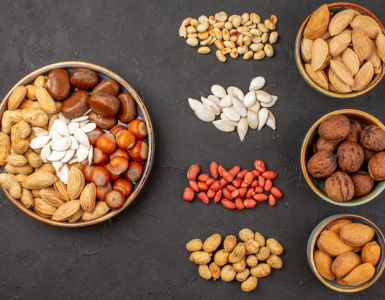Sweet potatoes are a root vegetable widely loved for their natural sweetness, vibrant colors, and impressive health benefits. Unlike regular potatoes, they belong to the morning glory family and are packed with essential nutrients such as vitamin A, vitamin C, potassium, fiber, and antioxidants.
They come in different varieties – from the popular orange-fleshed type to purple and white ones – each offering unique nutrients and flavors. In many cultures, sweet potatoes are considered a superfood because they support eye health, boost immunity, improve digestion, and provide long-lasting energy.
Sweet potatoes are often praised as one of the healthiest foods on the planet – packed with vitamins, minerals, fiber, and antioxidants. But before you add them daily to your meals, there are a few important things you should know. Here are 8 essential facts about sweet potatoes that can help you enjoy them the right way.
1.Rich in Vitamin A but Don’t Overdo It
Sweet potatoes are loaded with beta-carotene, which the body converts into vitamin A. Eating them regularly boosts eye health and immunity, but too much vitamin A may cause headaches, dizziness, or even toxicity when consumed excessively (especially in supplement form).
2.They May Spike Blood Sugar
Although healthier than regular potatoes, sweet potatoes still contain natural sugars and carbs. Eating them in large portions may cause blood sugar spikes, which can be risky for people with diabetes. Pairing them with protein or healthy fats can help balance this effect.
3.Not All Sweet Potatoes Are the Same
There are several varieties – orange, purple, and white. Each has different levels of antioxidants. For example, purple sweet potatoes are particularly rich in anthocyanins, powerful compounds that support heart and brain health.
4.Can Cause Digestive Issues in Some People
Sweet potatoes are high in fiber, which supports digestion, but too much can cause bloating, stomach cramps, or gas – especially if your digestive system is sensitive. Start with smaller portions if you’re not used to high-fiber foods.
5.May Contain Oxalates
Sweet potatoes naturally contain oxalates, which in excess may contribute to kidney stones in people who are prone to them. If you have kidney issues, talk with your doctor before eating them often.
6.They’re Healthier When Cooked Properly
How you prepare sweet potatoes makes a big difference. Baking or steaming preserves the most nutrients, while frying adds unhealthy fats and calories. Avoid heavy toppings like marshmallows or extra sugar – they cancel out the health benefits.
7.Good for Weight Loss – But Watch the Portions
Sweet potatoes are filling and provide slow-digesting carbs that can keep you full longer. However, large servings (especially when combined with butter or sugar) can add extra calories and slow down weight loss goals.
8.Can Interact With Medications
Because of their high potassium content, sweet potatoes may interfere with certain medications, especially beta-blockers or treatments for heart disease. If you’re on medication, check with your doctor before eating them regularly.
Sweet potatoes are a nutrient-dense superfood, but like anything else, they should be eaten in moderation. By understanding these 8 important facts, you can make the most of their benefits while avoiding potential side effects.






Add comment